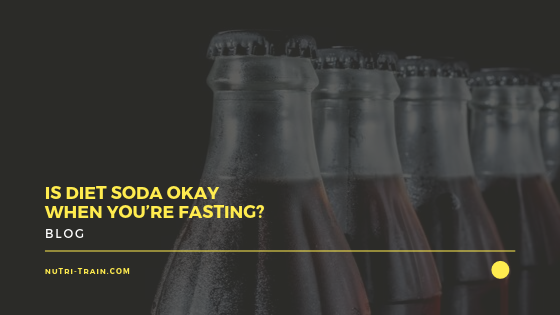|
I’m not going to lie, but I desperately wanted to be the ‘Diet Coke guy’ in the TV ads growing up and I still love the odd Coke Zero or Pepsi Max, but one of the main questions I get asked a lot when it comes to fasting is; ‘can I drink diet sodas whilst fating?’ The short answer is yes, BUT: I’d like to re-illiterate that you should not be drinking it too often, as we just don't have the long-term data on it's health effects on the body and brain. Plus, given the fact that the goal of a fast is typically to optimise health, you should ask yourself whether the Coke Zero is really helping you achieve that goal...? Diet sodas may contain zero calories, but obviously contain a mixture of sweeteners and most have caffeine. I’ll address some of the most popular sweeteners here, and their effects on insulin in particular, because when it comes to fasting – our insulin response is a major determinant in deciding what makes a product ‘fast-friendly’, or not. SaccharinSaccharin has mixed results, some say it does raise insulin[1], others don’t[2]. Which is interesting as it’s the one sweetener I actually remember whilst growing up in an environment dominated by diet culture. Therefore, try to avoid this one. Acesulfame Potassium The effect of acesulfame-K on insulin levels in humans is also unknown, which is worrying since it’s generally found in table-top sweeteners, dairy products, ice-cream, desserts, jam, jelly and marmalade and baked goods – most of which can be high in ultra-processed carbs and fats and maybe switch on the body’s storage mode. A potential recipe for disaster, and another one to avoid. Sucralose Sucralose is generally found in beverages and foods like chewing gum, sweetened dairy products, canned fruits, syrups and condiments. Research[3] indicates that sucralose doesn’t cause a spike in blood glucose and doesn’t affect insulin. Therefore, it’s okay (assuming your goal is not to induce an insulin response). Aspartame Aspartame, known for its use in Diet Coke and other diet foods, also doesn’t raise insulin. I have, however always found the association between these types of drinks and the foods consumed – energy dense and highly processed meals (a Big Mac and a Diet Coke, anyone? ;-)) very funny, and I’m pretty sure you’ve all seen the memes. Therefore, it’s okay (again, assuming your goal is not to induce an insulin response). Stevia Stevia is another non-insulin stimulating sweetener[4] and is possibly the most popular today since it’s included in many health and fitness products, and perceived as more natural. The most interesting thing about sweeteners is the by-product of using them – eating less sugar, the effects on our insulin levels and an intended reduction in energy intake. A 2010[5] study suggest that both stevia and aspartame are an effective tool for managing your overall energy intake – in particular your sugar intake. Another one that’s okay. Key takeaway I honestly believe that eating whole and unprocessed foods is best, regardless of your eating preference (keto, vegan, etc), but as a short-term strategy, I’d have to agree with the studies referenced above. If you need sweeteners to transition from sugar, and to get you through a fast, then go ahead and have the Coke Zero. I would ask that everyone try to minimise their intake of sugar as a first step towards a healthier life. This may naturally result in an increase in sweetener consumption, until you have a handle on your sugar intake and can then begin decreasing both all-together. Just make sure you remain aware of your preference for sweet products. Sweeteners are actually sweeter than sugar and can influence your taste preferences in favour of sweet… not the desired outcome! The artificially sweetened beverage won’t hurt you or your fast, but water is always the best hydration choice. I’d love to know what you think, please leave me a comment below. Speak soon, - JC [1] https://www.ncbi.nlm.nih.gov/pubmed/18556090 [2] https://www.ncbi.nlm.nih.gov/pubmed/7652029 [3] https://www.ncbi.nlm.nih.gov/pubmed/28502831 [4] https://diabetes.diabetesjournals.org/content/67/Supplement_1/790-P [5] https://www.ncbi.nlm.nih.gov/pmc/articles/PMC2900484/#!po=52.777
0 Comments
Leave a Reply. |
AuthorsJC and The Nutri-Team Archives
November 2020
Categories
All
|

 RSS Feed
RSS Feed
